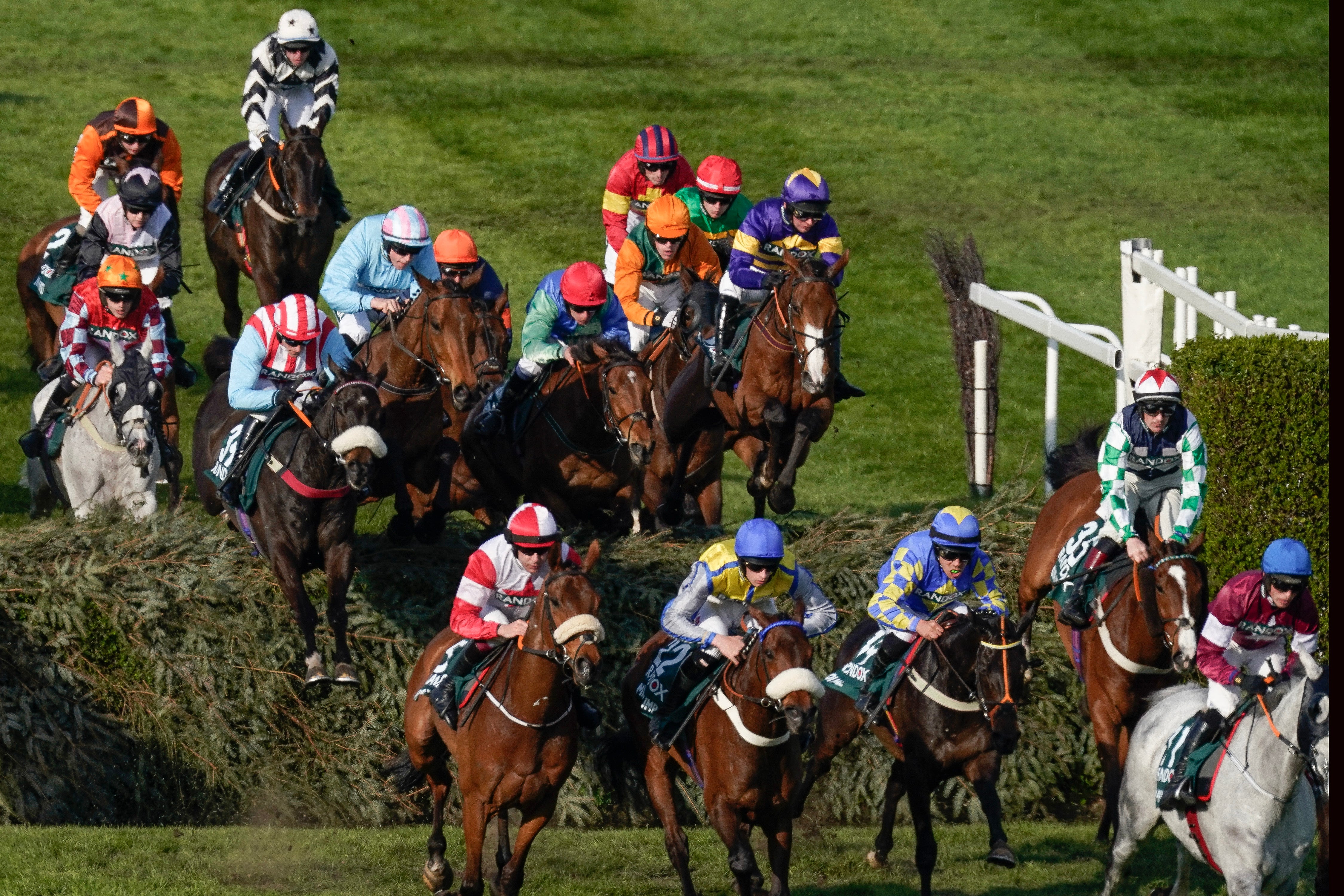It’s time to end the Grand National once and for all
More than 2,700 racehorses have died on UK courses in 17 years, writes Chas Newkey-Burden. How much more blood will have to be shed before the public decides enough is enough?


Do you hear that sound of breathless galloping? That’s the sound of horse racing bosses desperately scrambling to protect their cruel racket, as more and more people notice what happens behind the curtain.
At last year’s Grand National, activists from Animal Rising delayed the start by 15 minutes when they ran onto the famous Aintree course. Their protest put the spotlight on the horrors of horseracing and started a nationwide conversation that has truly spooked the industry.
In response, the organisers of the Grand National have announced so-called “welfare measures”, for this year’s race – but in reality, these measures are little more than panicked PR spin from a cruel industry that knows its days are numbered.
They’ve reduced the field from 40 to 34 horses, but that doesn’t change the simple truth that racing risks the lives of animals for greed. They’ve also moved the start closer to the first fence in an attempt to limit the speed of horses in the early part of the race, but this just shows they understand the huge danger they are putting the horses in.
Racing bosses say they look after horses better than they look after their own families. Well, what strange families they must be, because 2,775 horses have died on UK courses since 2007, and that’s before you add in the thousands of horses sent to slaughterhouses and labs when they get too old to make money anymore.
A Panorama investigation in 2021 found that 4,000 former racehorses had been sent to slaughterhouses in Britain and Ireland in less than three years. The horses often understood they were there to be killed and they screamed as they arrived. Footage collected by Animal Aid showed that so-called "welfare rules" were often ignored.
Sometimes “spent” horses are even driven to laboratories so that scientists can perform cruel experiments on them before they’re killed. This is just another of the ways that racing bosses “look after horses better than they look after their own families”.
Of course, not all horses die on courses, or in slaughterhouses and labs. Some live out their retirements at animal sanctuaries, but even then it’s not really a case of “happily ever after”. I sometimes volunteer at a horse sanctuary where most of the horses have come from a variety of unhappy situations – neglected, abandoned or mistreated in some form. But the most distressed of them in my experience are those who came from the horse racing industry. Their trauma is all too clear.
So, racing’s spin doctors can say they look after horses all they like – but the beings they actually look after are the greedy bosses of the gambling industry. Horse racing is another lucrative way for the gambling industry to take money from the poor, desperate and bewildered, and hand it on a gold plate to people who are already rich.
On Sky News this week, Animal Rising activist Ben Newman asked horse breeder and racing apologist Kevin Blake whether the statistic of a racehorse dying every other day in the UK was an "acceptable death rate" to him.
Blake replied: "Well, society deems it an acceptable death rate because racing continues." So rather than offer any moral defence for the death rate, he just said that it’s okay for all those horses to be killed because society – that’s you and me – think it’s okay.
But does Blake speak for you? Do you think that 2,775 racehorses dying on UK courses in 17 years, and thousands more being killed in slaughterhouses, is acceptable? I certainly don’t.



Join our commenting forum
Join thought-provoking conversations, follow other Independent readers and see their replies
Comments